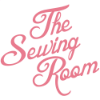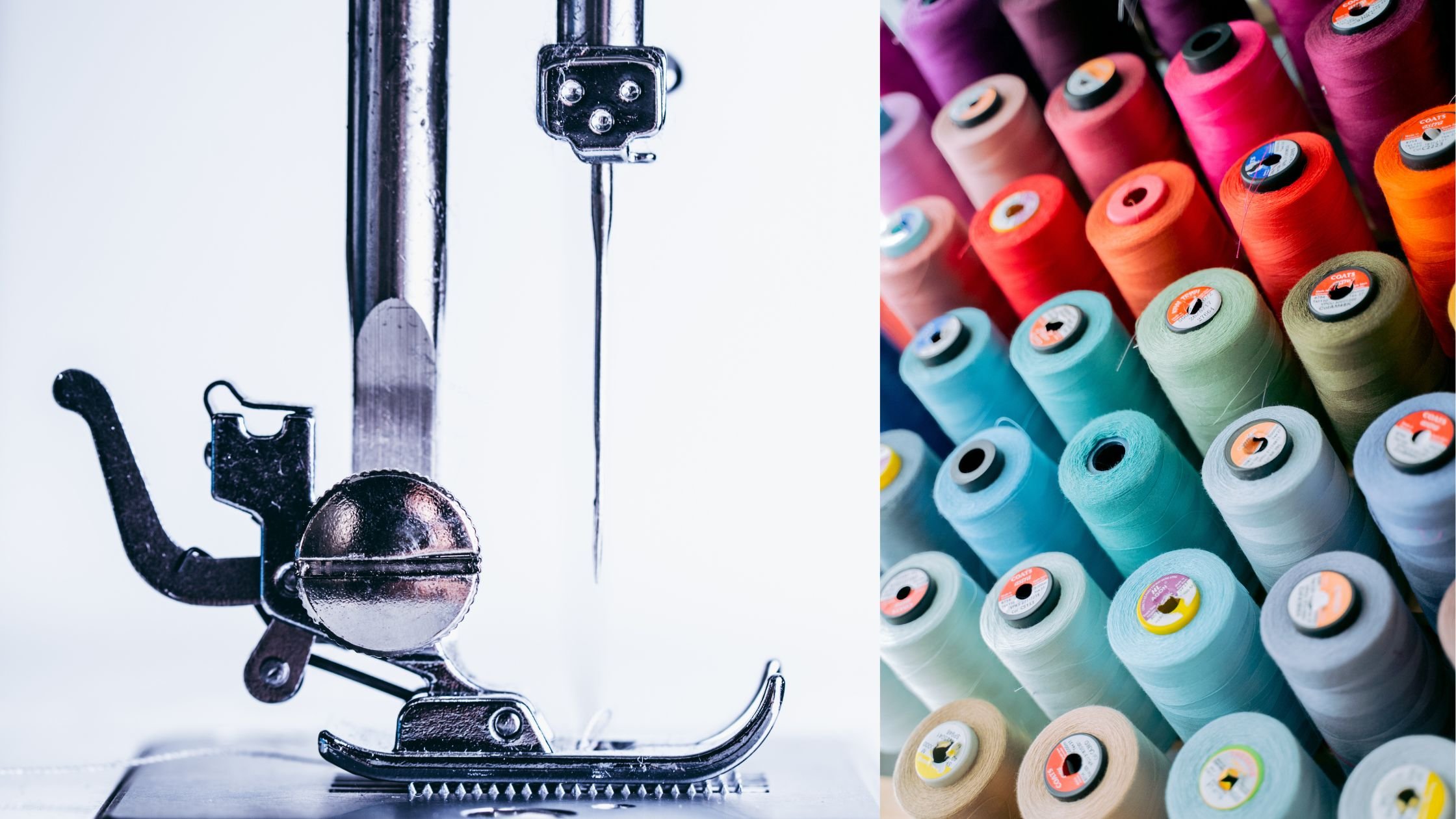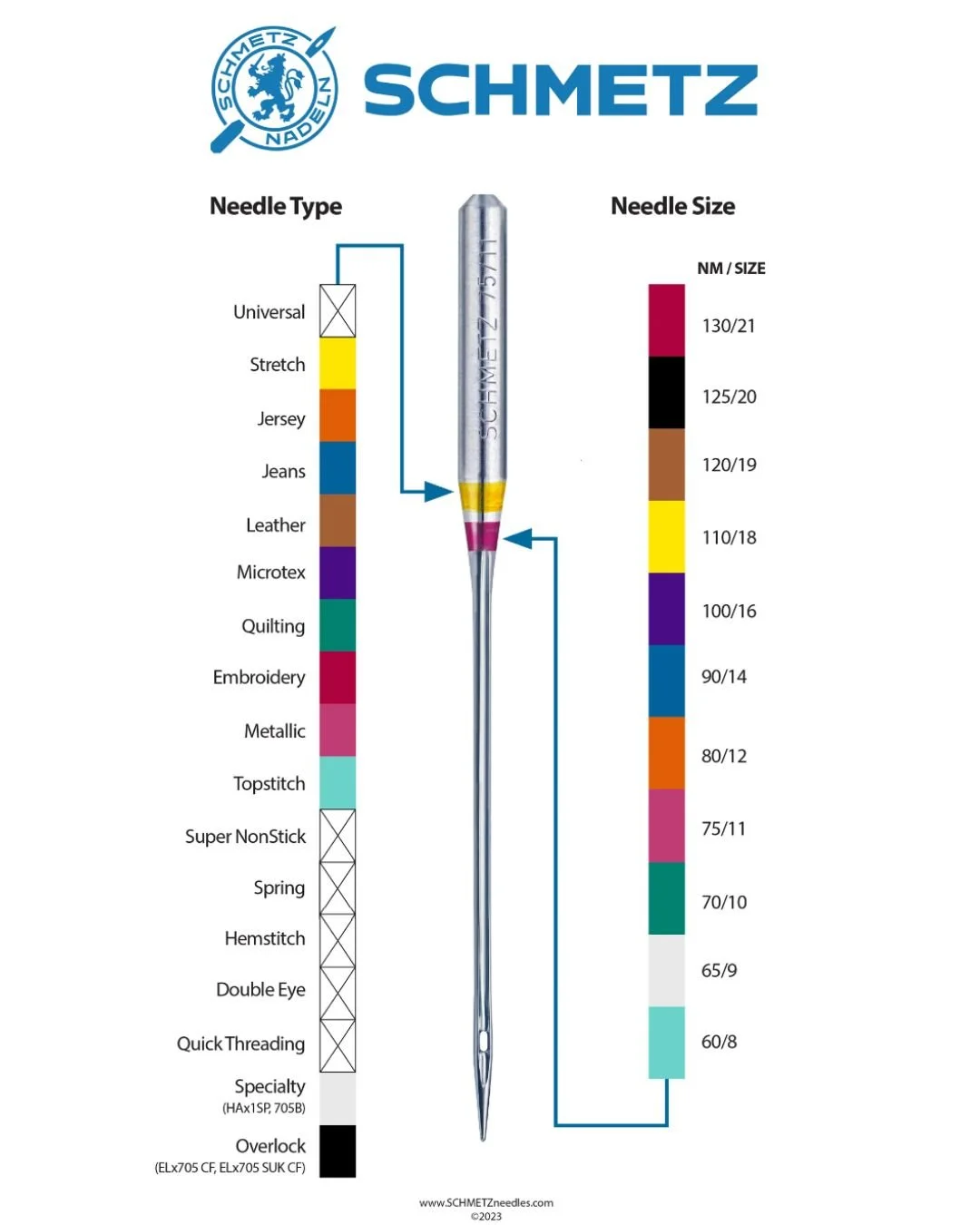Many of you have been sewing for many years and already have your needle and thread preferences. But for the beginner, the choices for both can often be confusing. The size and quality of both needle and thread have an even larger impact on your sewing quality than thread tension. Keep thread tension in the middle settings, by the way, and pay attention to your needle size/type and thread type/quality. Below are some basic rules of thumb for using both.
Needles
Needles come in different sizes and are created for the type and weight of the material you are working with. Typically the smaller the number of the needle size is for lighter weight fabrics and as the size of the needle increases, so does the weight of the fabric. For instance you might use a size 60/8 with a silk chiffon or cotton lawn while you would use a 100/16 for Denim or heavy weight Canvas.
Needles are also created for different types of fabric. Most universal needles work great on woven fabrics. Stretch or Jersey needles have a different shaped point of the needle that make them ideal for working with stretch and/or knit fabrics, preventing snags. I love the Microtex needles that Schmetz makes because they are very sharp and seem to work with all sorts of fabrics. Schmetz brand has a wonderful chart and explanation of needles here in addition to the the handy chart I posted above which explains the color coding of needle type & size.
Most home sewing machines can use pretty much any home sewing needle. Some machine companies want you to purchase only needles that they make under their brand name, but it is not necessary in most cases.
Home sewing needles have a flat back and industrial machine needles are round.
Thread
Buy the most expensive thread you can afford - you really do get what you pay for. My favorite brands for thread are Gutterman & Metler. Some folks really like Aurefil. We sell Gutterman thread at The Sewing Room.
Thread can be made from different fibers. The most common threads are either 100% polyester , Cotton covered polyester threads or 100% cotton threads.
Thread fiber is a personal choice. I prefer 100% polyester thread, because it sews smoothly and has a terrific variety of colors. The environmentalist in me would have me use 100% cotton thread because it is biodegradable & more sustainable (theoretically - the dyes and finishing may actually diminish that bonus). I hear that quilters prefer 100% cotton thread because the fabric one uses for quilting is usually 100% cotton and the shrinkage might be the same. That is probably a bit of a theoretical situation as well because of all the elements involved in the quilting process - fabric pre-washing & blended fiber batting as just two examples.
There are different kinds of threads for different kinds of machines -
All Purpose thread - This is the kind of thread used with most home and industrial sewing machines and is both strong and durable enough for apparel, quilting and and general craft use.
Serger thread (or thread on cones) is different from sewing thread and not as strong. It’s meant to be used on a serger or overlock machine which uses several threads at a time.
Embroidery thread is meant for an embroidery machine. The threads are meant to be decorative and often will have much more of a shine than all-purpose thread.
Machine quilting thread is meant for quilting and is slightly stronger than all purpose thread and may require a larger needle so as to prevent excess friction. Do not confuse this thread with HAND quilting thread, which should only be used for hand quilting.
There are many other kinds of specialty threads. Be sure to investigate proper application and usage before using.
I’m in no way affiliated with any of the Brands listed in this post, merely mentioning my preferences. I hope you’ve found this information helpful and until next time, Happy Sewing!
Xo Jennifer




